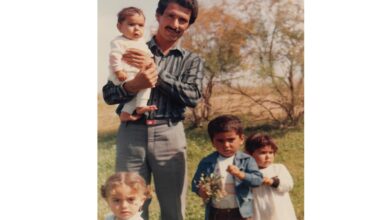Association for Defending Victims of Terrorism – HRW issued a report on Yemen situation in 2021.
As the conflict in Yemen enters its seventh year, the United Nations Office for the Coordination of Humanitarian Affairs (OCHA) estimates that it has caused the deaths of nearly a quarter of a million people. Millions of Yemenis continue to face the largest humanitarian crisis in the world, with more than half the population facing acute levels of food insecurity. Yemen depends on imports of almost all its food and essential commodities, and the collapse of its currency has led to skyrocketing food and other commodity prices and reduced households’ purchasing power. Millions of people cannot afford to meet their basic needs.
The conflict intensified in 2021 with 49 districts in Yemen directly affected by active front lines, up from 35 at the start of 2020. Marib governorate was the site of heavy fighting between Yemeni government forces and the Houthi armed group. Over 4 million people are internally displaced due to the conflict. The Covid-19 pandemic worsened the humanitarian crisis.
Civilians across the country suffered from worsening economic conditions and lack of basic services. Southern Yemen witnessed protests over deteriorating economic conditions and basic services. Torrential rains and flooding in May 2021 killed scores of people and damaged homes and infrastructure across the country. The UN Group of Eminent International and Regional Experts (GEE) on Yemen and other rights groups documented how parties to the conflict continue to commit serious violations of international human rights law and international humanitarian law, including violations that likely amount to war crimes. Nevertheless, under heavy pressure from Saudi Arabia and the United Arab Emirates, the UN Human Rights Council narrowly voted in October 2021 to end the mandate of the UN Group of Eminent Experts, shuttering the only international, independent body investigating abuses by all parties to the conflict in Yemen.
The Civilian Impact Monitoring Project, a monitoring mechanism under the United Nations Protection Cluster for Yemen, reported that 2,087 civilians were killed in armed violence in 2020. In September, the Yemeni human rights group Mwatana and Global Rights Compliance concluded that conduct by the coalition and Houthis severely impeded civilians’ access to food and water, effectively using starvation as a weapon of war, in violation of international humanitarian law.
Throughout the conflict, the Saudi and UAE-led coalition have committed unlawful attacks against civilian objects, such as residential homes, hospitals, and schools.
More than half the 20.7 million Yemenis in dire need of humanitarian assistance or protection are children. In 2021, Save the Children reported that between 2018 and 2020 a quarter of all civilian casualties were children. More than 1.5 million of Yemen’s 4 million displaced people are children, and hundreds of thousands of children have become migrants or sought asylum abroad.
UNICEF and other groups warned in 2021 that children were facing the highest levels of severe acute malnutrition recorded in Yemen since the escalation of the conflict in 2015, with 2.3 million children acutely malnourished and nearly 400,000 children under five at imminent risk of death.
UNICEF stated in August that 2 million children were out of school and that one in six schools could no longer be used due to war damage. Parties to the conflict continued to utilize schools for military purposes. The UN Group of Eminent International and Regional Experts on Yemen reported in 2021 that the Houthis, the Saudi and UAE-led coalition, and the Yemeni government had recruited children, used children in hostilities, and detained children.
UN Secretary-General Antonio Guterres for the second consecutive year failed to include the Saudi and UAE-led coalition from his “list of shame” of parties responsible for grave violations against children during conflict, despite attacks that killed and maimed children.





